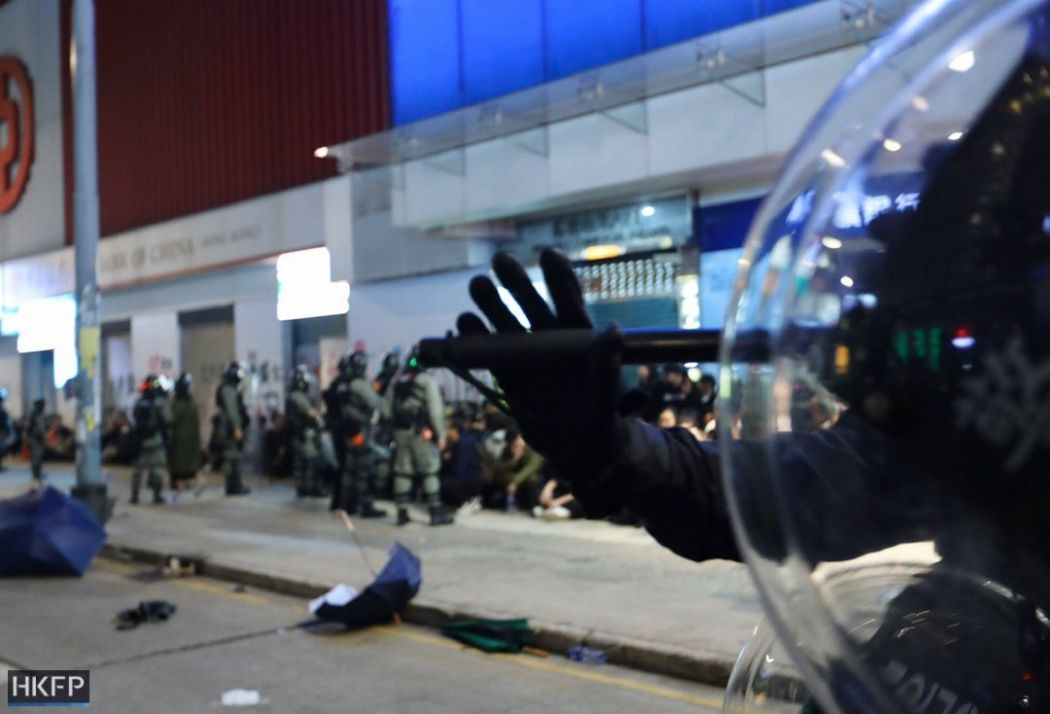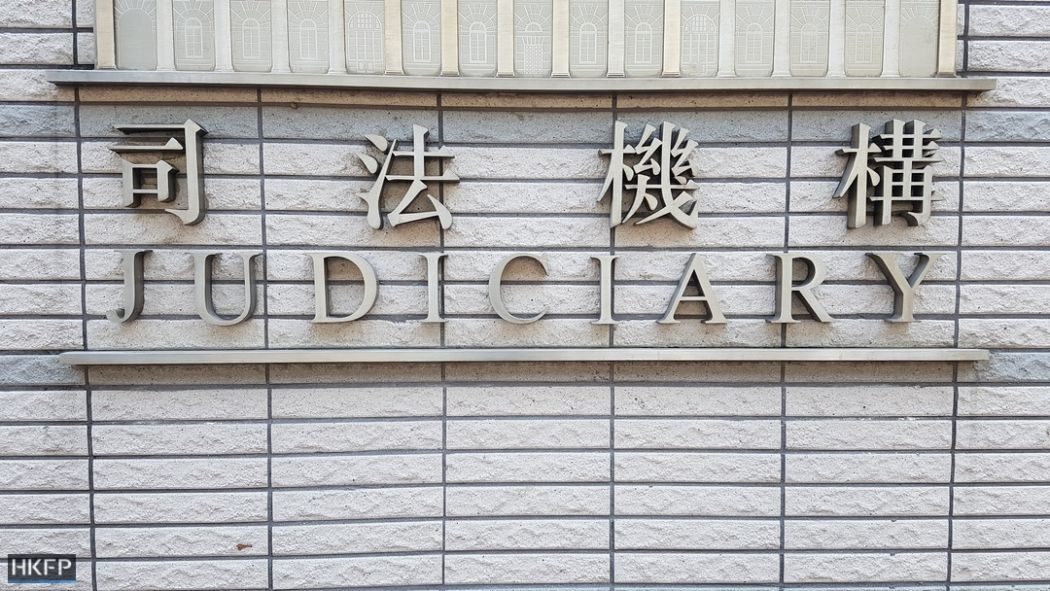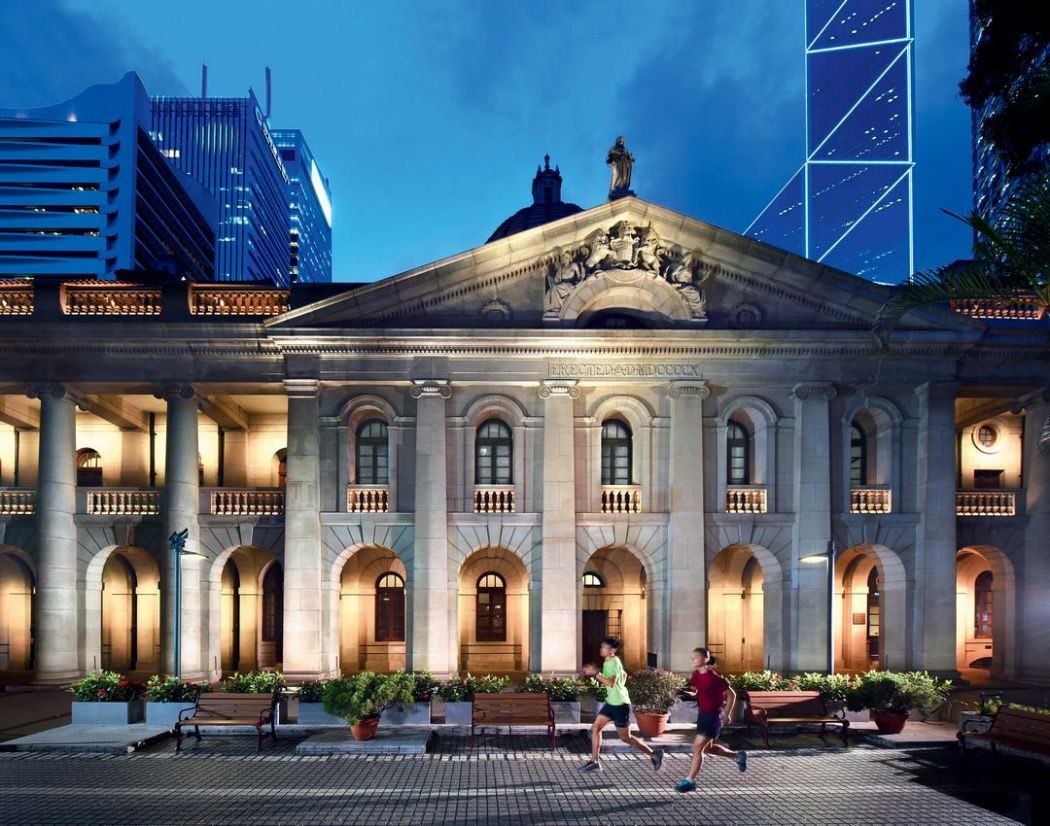In June, when Beijing officials and their local representatives were preparing public opinion for the new National Security Law, they all kept repeating the line about how most people have no need to fear – only the very few.
The law was meant to target only them, they knew who they were, and so on. To those with no recollection of China’s post-1949 revolutionary agenda, it seemed a straightforward attempt to reassure and quieten nerves ahead of the law’s promulgation on June 30.

In fact, it was just the opposite: the standard warning announced in advance of major mass campaigns when the few were held up as exemplars and used to publicise the fate of all who failed to conform.
The result is a fascinating historical replay of times past as the entire community is subjected to an updated version of the old-style rectification campaign. The “struggle, criticism, reform” routines may have been transposed for use in a Westernised 21st century city. But the exercise is still reminiscent of a newly victorious Chinese Communist Party, as it struggled for three decades after 1949 to dismantle all the old sources of authority and create a new revolutionary order.
Before their 1997 return to Chinese rule, Hongkongers had been promised they would not be subjected to those same kinds of disruptive upheavals. But since June 30, the old urge to try and remake society to Beijing’s liking is evident everywhere: in the language of official discourse, the demand for professions of loyalty from civil servants, the scrutiny of candidates for elective office based on past behaviour, and scrutiny based on behaviour while in office. The press, churches, schools, teachers, students – nothing is off limits, no one seems to be exempt. Labeling and targeting are the new norms.

Hong Kong’s Chief Executive Carrie Lam set the pace with her “bad apple” designation for the teacher who has been summarily expelled from his profession for introducing course materials on Hong Kong independence to his students.
Her predecessor, Leung Chun-ying, has taken it upon himself to “out” 18 other teachers currently under investigation for their behaviour during the past year. He has just posted the teachers’ names and the acts for which they are being investigated.
The education authorities were reluctant to publicise the names until investigations had been completed, so Leung proceeded on his own – although he must have obtained the information from those same authorities. So much for the presumption of innocence until proven guilty.
By now the basics of the new law have almost been forgotten amid the range of transgressions that can mean trouble for perpetrators and suspects. But the law formally criminalises acts of subversion, secession, terrorism, and collusion with foreigners.
At first there were sighs of relief all around since few people saw themselves as being capable of committing such fearsome crimes. Everyone had been given fair warning before June 30, and the law is not retroactive. So, if everyone behaved themselves afterwards, maybe there really was nothing to fear after all. Relief was short-lived as behaviour past and present began to be scrutinised and judged in light of the new norms inherent in the new law.

Yet if there was one institution thought to be immune from such demands for political conformity, it was Hong Kong’s judiciary. During all the political controversies since 1997, some of those most concerned took comfort in the argument that whatever else might happen, Hong Kong’s judicial system would be safe.
According to this line of reasoning, an independent judiciary is, if nothing else, essential for maintaining Hong Kong’s status as an international financial centre. Thus, Hong Kong still has an important role to play in Beijing’s grand plans for national revival. Overseas investors with cross-border interests needed the reassurance that Hong Kong’s legal system can provide. Beijing’s own self-interest would serve as protection for Hong Kong’s independent judicial system.
Danger signal: Separation of powers
Still, the threat was always present, which was what gave life to the comforting argument. It kept reappearing due to years of controversy over the judiciary’s proper post-1997 place in Hong Kong’s unique One Country, Two Systems governing relationship with a central government under Communist Party rule. Beijing officials kept reminding everyone that in their eyes, courts and judges are supposed to work in tandem with the executive.
These reminders gave rise in turn to endless arguments over the separation-of-powers principle that was supposed to guarantee checks and balances between and among the three – executive, legislative, and judicial – branches of Hong Kong’s government.
The first danger signal appeared soon after the National Security Law was promulgated on June 30. “Separation of powers” was missing from material on Hong Kong’s form of government in the fall semester’s Liberal Studies textbooks.

Liberal Studies is taught at the senior secondary level and has itself become the subject of much controversy. Pro-Beijing critics have called for its abolition. They hold it to be responsible for the wrong-headed ideas currently darkening the minds of Hong Kong youth.
The separation-of-powers debate revived briefly in early September. Beijing’s representative Liaison Office here stepped forward in its new role as a direct participant in Hong Kong’s governance. There is no separation of powers, said Hong Kong’s Chief Executive, the Secretary for Justice, and the Liaison Office in unison.
The three branches are accountable to the central government and report to Bejing through the Chief Executive. All powers are delegated from the central government. They are not decentralised. Hong Kong’s governing system is therefore “executive-led.” The formula is now fixed. There is no room for debate.
But there was more to the official declaration, deriving from the norms of the new national security regime. According to a September 7 statement from the State Council’s Hong Kong and Macau Affairs Office in Beijing, separation of powers was being used by people with ulterior motives.

Such people wanted to expand locally exercised legislative and judicial authority. Their aim was to undermine the Chief Executive and the central government’s comprehensive jurisdiction over Hong Kong, thereby transforming it into a separate political entity, or the equivalent of a sovereign state. It followed that separation of powers was akin to calls for independence and had no place in Hong Kong.
From there it was only a short step to scrutinising the courts themselves, and singling out verdicts, rulings, sentences and the judges who made them.
Under fire: Judges and their rulings
With some 10,000 arrests since mid-2019, a steady stream of complaints has come from all sides – directed against both the police and the courts.
But after the promulgation of the National Security Law, pro-Beijing forces went on the offensive. Now emboldened, opinion leaders and the state media are going further than ever before – by demanding reform of the judiciary and by launching a campaign of criticism against judges deemed too lenient in their handling of cases from last year’s protests.
Targeted as the model offender in this regard was a young magistrate, Stanley Ho Chun-yiu. He was labeled a “separatist magistrate” and accused of issuing problematic rulings in several cases.

Most controversial were his reasons for acquitting District Councilor Jocelyn Chan, charged with assaulting a police officer during last year’s protests. He did so on grounds the police witnesses lied in lieu of producing credible evidence to substantiate their allegations against her. Discrediting the police is a no-go area for their supporters, regardless of the circumstances.
Magistrate Ho was transferred from the bench to a desk job, ostensibly for other reasons, while his rulings and verdicts were reviewed. Not content, the critics said the new post was actually a reward since it came with a higher salary. They were even angrier when the investigation cleared him of wrongdoing and concluded that his decisions had gone by the book in all respects.
The chief spokesman in pursing these complaints is pro-Beijing Legislative Councillor Holden Chow Ho-ding, a lawyer by profession. He and others are calling for the creation of a sentencing council or at least strict guidelines to keep judges on the straight and narrow in their decisions.
Chief Justice for the defence
Despite the similarities with times past, this is not revolutionary China where the campaign sequence entailed criticism and public shaming, followed by self-criticism while the targets demonstrated their acceptance of the accusations as a first step toward reform and rehabilitation.
In this case, the head of Hong Kong’s judiciary himself stepped forward on September 23, with an 18-page rebuttal that betrayed no remorse whatsoever. He rejected all the charges and their implications and essentially challenged the critics to defy him – which they promptly tried to do.

The larger context was separation of powers and the new official ultimatum denying its existence. But Justice Ma did not mention that controversy. Instead, he phrased his declaration of judicial independence within the context of the “commentaries, opinions and criticisms in relation to recent decisions of the courts.” His aim, he said, was “to remind the community of certain basic essential principles governing the administration of justice in Hong Kong.”
Ma began with multiple references to the Basic Law’s promises about judicial independence. The principles governing the administration of justice in Hong Kong all derive from the Basic Law and Hong Kong’s judges are bound by the prescriptions of this document, he wrote.
Chapter One, article 2 on general principles says that the Hong Kong Special Administrative Region enjoys “independent judicial power.” Chapter Two, Article 19, says the HKSAR is “vested with independent judicial power.” Chapter Four, Article 85, says that Hong Kong courts “shall exercise judicial power independently, free from any interference.”
Obviously, he does not subscribe to the more recent thinking of some in Beijing who say the Basic Law, drafted in the late 1980s and promulgated in 1990, is now getting “old” and therefore no longer entirely relevant in today’s environment.

Ma then went on to reiterate the basics. Courts and judges do not have the power to determine political controversies or promote political viewpoints, or rule in accordance with the media or public opinion.
“Judges must not be influenced by political considerations of whatever nature in the discharge of their duty to apply the law.” Everyone is equal before the law and entitled to a fair and public trial. Everyone is presumed innocent until proven guilty beyond a reasonable doubt.
The Chief Justice also does not seem too enthusiastic when contemplating the current allegations about judicial leniency in the granting of bail, convictions and sentencing. Of course, criticism is justified if basic principles are being violated, he wrote. But it should be supported by “proper grounds and reasons.”
The battle joined: More danger ahead
No one was satisfied. For democracy activists, Ma’s September 23 statement never mentioned the separation of powers controversy. But pro-Beijing campaigners saw it for what it was: a defiant defence of the one branch of government they have yet to subdue.
The executive has long since capitulated. And Hong Kong’s Legislative Council is a sorry reminder of the Basic Law’s Article 68 promise of a representative body wholly elected by universal suffrage. But the judiciary was still standing strong and proclaiming its independence.

“Chief Justice Ma: You Are Evading Reform!” — proclaimed the banner front page headline in Ta Kung Pao two days later. The pro-Beijing daily had been running a series on judicial reform for weeks. Some of the most dramatic assertions even came with English translations.
The basic message was always the same: targeting the judiciary’s independence and demanding that rulings – on bail, acquittal or conviction, and sentencing – be brought into line with strict new norms. Accordingly, “judicial independence is no excuse for abusing power.” “The judiciary must have the courage to reform itself.”
The judiciary behaves like an “independent kingdom” above and beyond outside supervision. Any criticism is deflected with their favourite “judicial independence” excuse. So, outsiders dare not go near the sacred precinct.
But most ominous in the campaign-style offensive is the assertion that the courts’ leniency had helped create the social climate responsible for last year’s protests. With that charge came a warning of what lies in store: if the judiciary does not put its house in order and reform itself, someone else will do it for them.
Support HKFP | Policies & Ethics | Error/typo? | Contact Us | Newsletter | Transparency & Annual Report | Apps
| HKFP is an impartial platform & does not necessarily share the views of opinion writers or advertisers. HKFP presents a diversity of views & regularly invites figures across the political spectrum to write for us. Press freedom is guaranteed under the Basic Law, security law, Bill of Rights and Chinese constitution. Opinion pieces aim to point out errors or defects in the government, law or policies, or aim to suggest ideas or alterations via legal means without an intention of hatred, discontent or hostility against the authorities or other communities. |
Help safeguard press freedom & keep HKFP free for all readers by supporting our team

More HKFP OPINION:
HKFP has an impartial stance, transparent funding, and balanced coverage guided by an Ethics Code and Corrections Policy.
Support press freedom & help us surpass 1,000 monthly Patrons: 100% independent, governed by an ethics code & not-for-profit.










